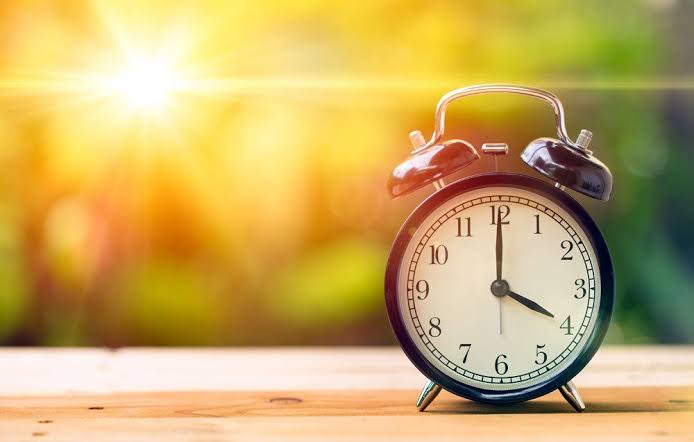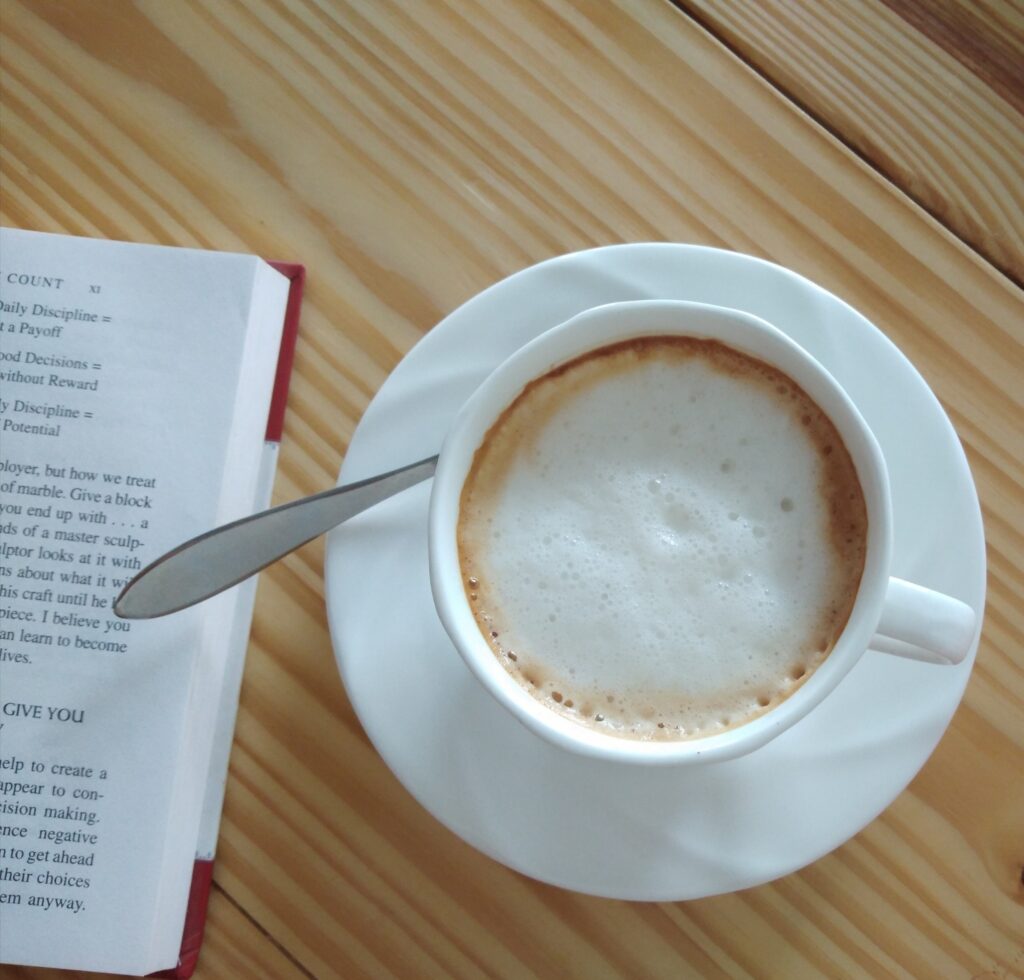
When I was a kid, I used to see my mother waking up around 4am every morning and wonder if I would need to get up that early when I grew up. It was something that I definitely did not want to do. I disliked it completely. And here I am, waking up around this very time. But no part of it is being forced upon me. I am doing it of my own volition.
The people who wake up early are considered to be the most productive, focused, determined, happier etc. But that is just trash and not true. Early risers are more productive in the early hours of the day whereas night owls are more productive during night time. Sometimes we are not sure which type we are because we have been the creatures of our habit and have not tried the other thing sincerely. But if waking up an hour or two later gives a person more energy for the day ahead, then this is better than waking up too early and feeling drained throughout the day. Also, when we talk about the people who wake up early, it’s not their will and determination to get up at 4 or 5am which is important. Rather it is their night time ritual which is worth paying attention to. If I go to sleep around midnight, I will definitely not be able to get up around 4am. I had been waking up around 4 or 5 o’clock for a long time now but waking up without an alarm is something I introduced into my routine just as an experiment. In this blog post I would be discussing my observations of tracking my sleep patterns for a 47 day period and various tools that can help us have the best out of our sleep time.
Our sleep is made up of cycles- NREM and REM sleep cycles. REM- Rapid Eye Movement sleep cycle is very light sleep during which most of our dreams occur. Non-REM has various stages- NREM1, NREM2, NREM3, NREM4(deep sleep).
We gradually enter into these phases, starting from light sleep, entering the deep sleep mode and gradually returning to the almost awake state – REM, this whole process completes one sleep cycle. Humans have a sleep cycle which lasts upto 90 minutes approximately. NREM4 is the deep sleep which is restorative for the body and REM sleep is restorative for the mind.
Sleep is way more important to our restoration even compared to diet and exercise. 7-9 hours of sleep is a standard guideline, but different people have different requirements. Some people feel fresh and energetic even if they have 5 hours of sleep whereas some feel completely lethargic even after having 8-9 hours of sleep, and there comes a confusion as to how many hours do we need?
It is difficult to know how many hours of sleep we need to feel energetic the next day but there is a way to know how many hours we need “to recover from the previous day fatigue.” And that could be known when we try going to sleep at the same time everyday but wake up without an alarm. That is exactly what I wanted to figure out for myself.
Many scientific studies have established that we feel tired if we get up during our Non-REM sleep phase. As the body temperature rises, we wake up the most easily during or after REM sleep. We also perform better on tasks like creative problem solving if we wake up from REM sleep phase (according to our individual potential of course). If we get up with the alarm during the deep sleep phase, it is a shock to the body. It gets our heart rate up first thing in the morning. But our jobs have made it a necessity for us which is another topic of discussion for some other time.
I tracked my timings for – a) what time I went to bed and b) what time I got up the next day. Most days I went to sleep somewhere around 9:30pm and woke up usually @2:50am/@3am/@3:10am/@3:20am/@4:10am/@4:50am/@5:05am/@5:25am/@5:50am. Most frequent among those are between @4:45am and @5:30am. During this process of tracking my sleep, I observed that it was true that the amount of sleep depends on our previous day activities – physical as well as mental fatigue, but there are many other factors at play, for example- the food we eat, composition of various nutritional elements, what time we eat, screen time before bed etc.
I found out that on days when I had a tiring exercise session, I woke up later than 4:30am. But there were mornings when I got up around 3 o’clock and felt super fresh. Sometimes if I got up in the middle of the night, it took me an hour extra and I woke up around 5:30-5:40 approximately…sometimes later…around 6 o’clock. The good effects of limiting coffee, tea or sugar intake couldn’t be observed in the beginning. But I could feel the difference during the second week. The effect of having an early dinner (3 hours before bedtime), I observed after almost a month. Instead of going into extremely minute details of my routine, I would like to share a few basic but major key points that I personally found very helpful in my case.
FACTORS THAT CONTRIBUTE TO OUR SLEEP QUALITY
Using electronics like- phone, laptop etc. hinders sleep. We need to be away from screens two or at least one hour before going to bed.
Smoking and alcohol consumption not only affects the timing of getting sleep but also the “quality” of our sleep
Caffeine intake affects quality of sleep, especially if consumed near bed time. Avoiding tea or coffee consumption after lunchtime will give us enough time to get it out of the system(6-8 hours preferably). Most importantly, the more we have it during the day, the less it will help us in terms of raising our energy levels (reason for which we are consuming it in the first place…to have that ‘kick!’).
Carb loaded heavy meals affect our sleep by raising the body temperature, thus not letting us get into deep sleep easily.
Exercising in the morning is better for us. But If one likes doing it in the evenings, it should not be close to bedtime, otherwise it will hinder sleep by keeping the ‘core body temperature high.’ Different people have different body types. So, what works for one person might not work for another. Try observing what works for you.
If you are having trouble sleeping even after a long time getting into bed, then read, write or listen to music. By reaching out to the phone, laptop or tv., you are just making it worse. It takes time to get used to a certain routine. Trying something new – diet, exercise or any other thing for a few days and saying that it doesn’t work, is completely unreasonable. We need to give our body enough time to adapt itself to the new system.
Taking a nap during the day is actually tricky. It can enhance energy levels whenever you have done focused work at a stretch, but ‘not more than 20-25 minutes’ otherwise it would hamper sleep at night. Long naps in the villages during the summer season become kind of a necessity due to more physical work.
Take a bath before bed-time. It helps regulate body temperature, thus increasing the sleep quality.
This last point is the most difficult one for people and also the biggest reason leading to poor sleep quality. Funny thing is that it used to be the easiest in earlier times. That is – ‘Going to sleep before 10 pm’ which is supported by our natural circadian rhythm. A sleep time between 12 midnight and 6am is not the same as the one between 10pm and 4am in terms of quality.
Certain jobs don’t let some people have this luxury, but the others who have this option, they can focus on going to bed early. Set an alarm for when you should go to sleep to meet your target wake-up time rather than giving yourself a hard time for not waking up early. An early morning starts with an early bedtime. Focus should be on improving the quality of sleep and not the number of hours.
Most of the seemingly complex problems have simple solutions while we are looking for something magical. But “simple” does not mean “easy”. As those solutions are usually highly boring and they demand patience and persistence.

